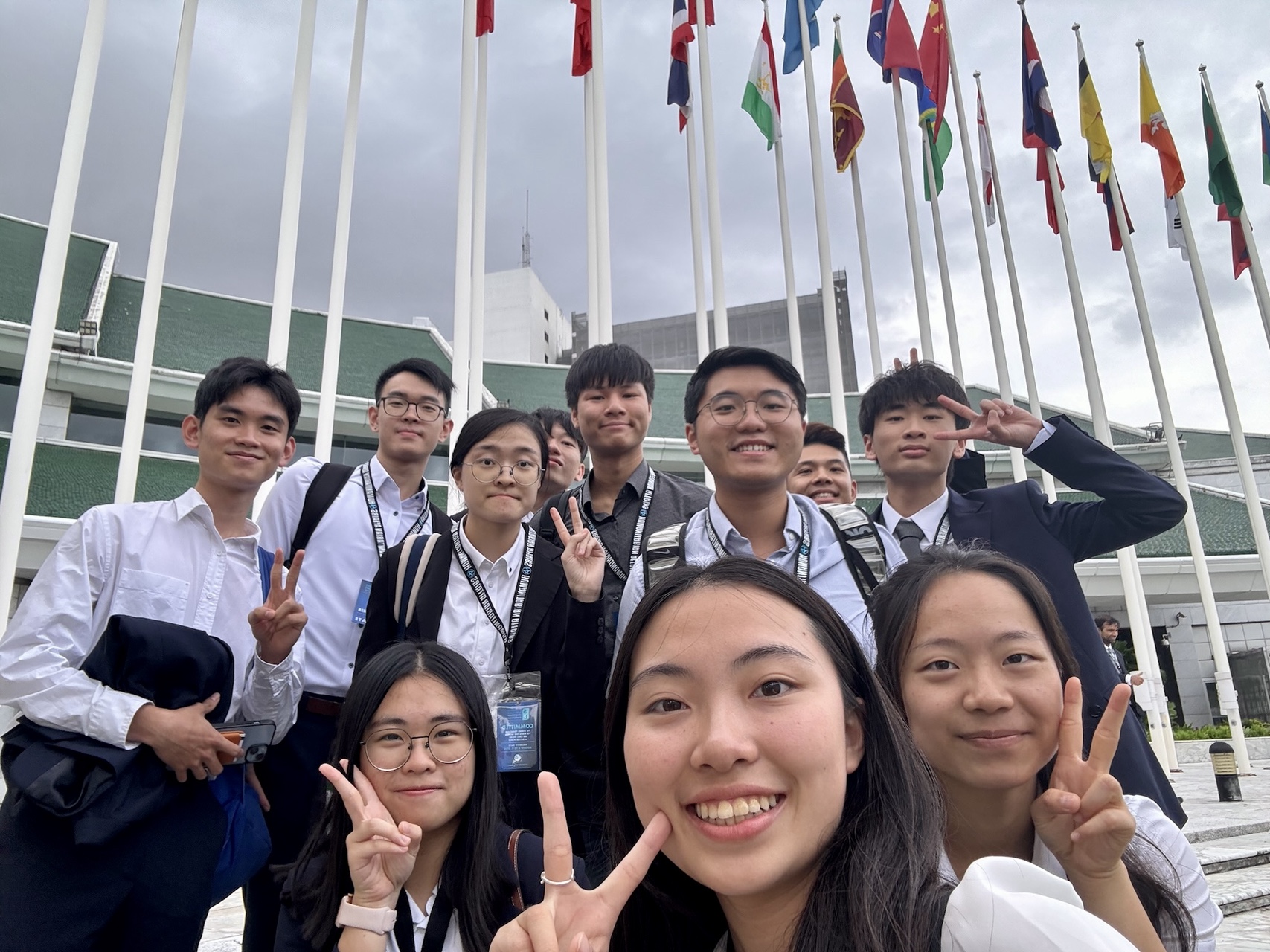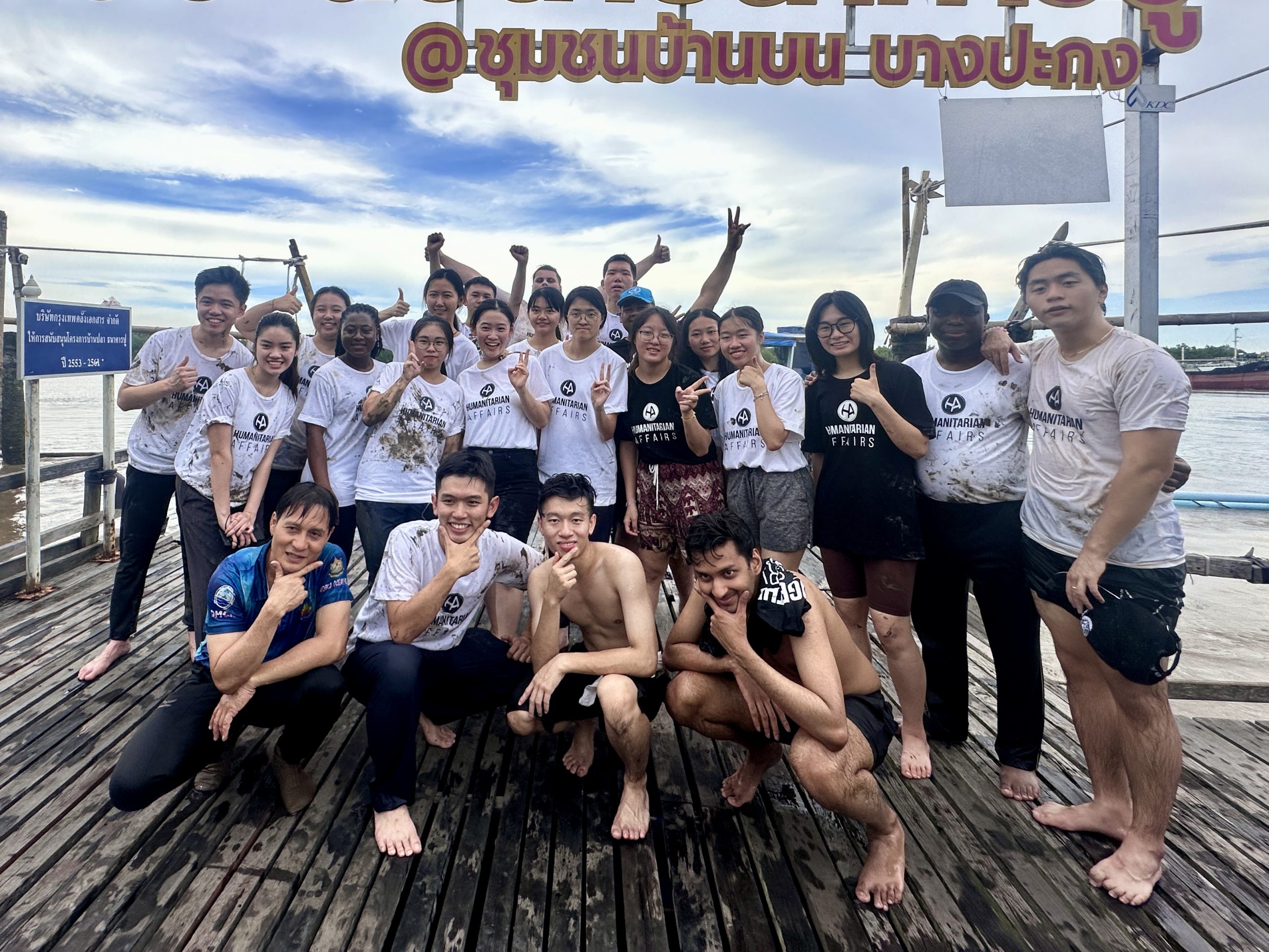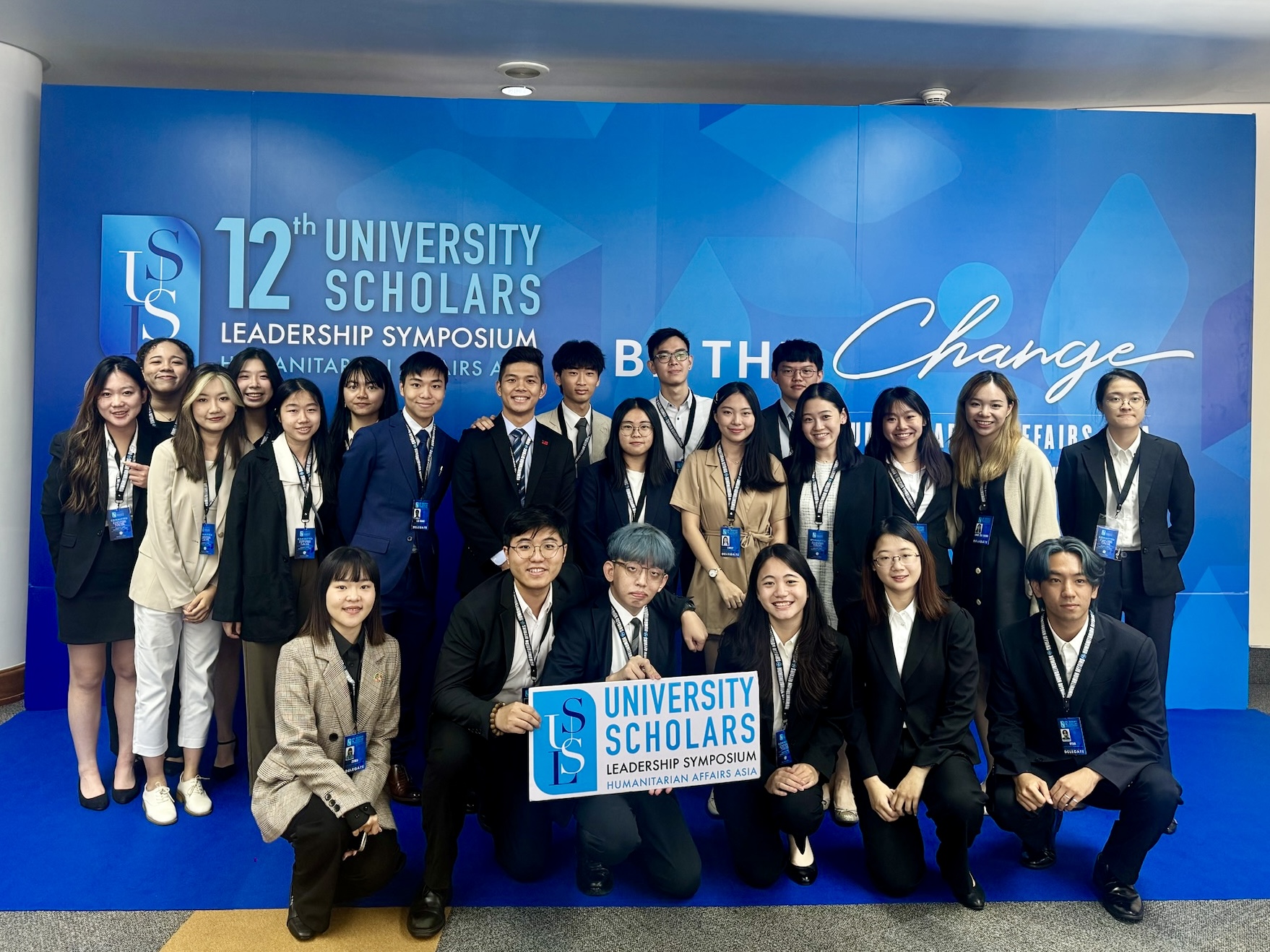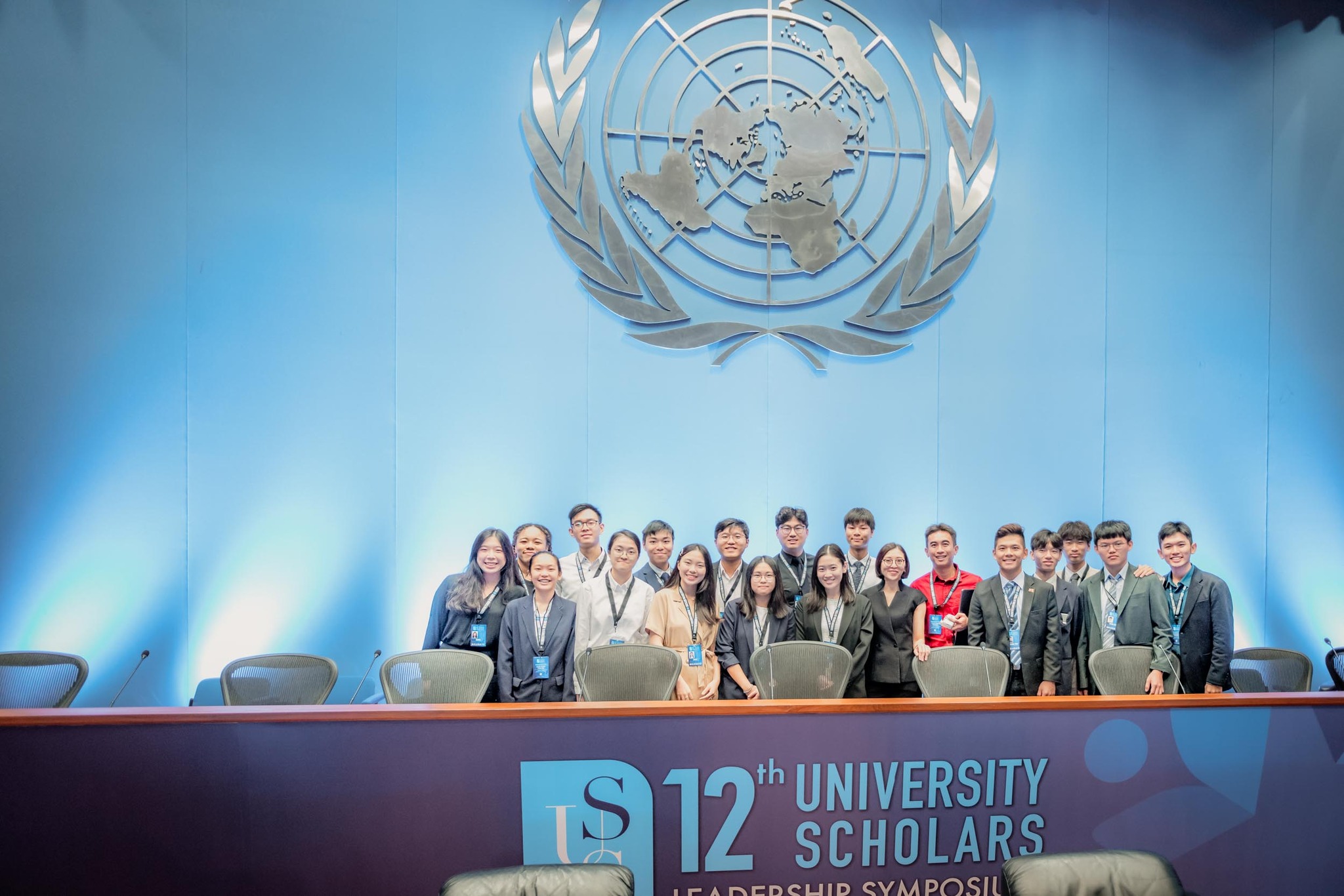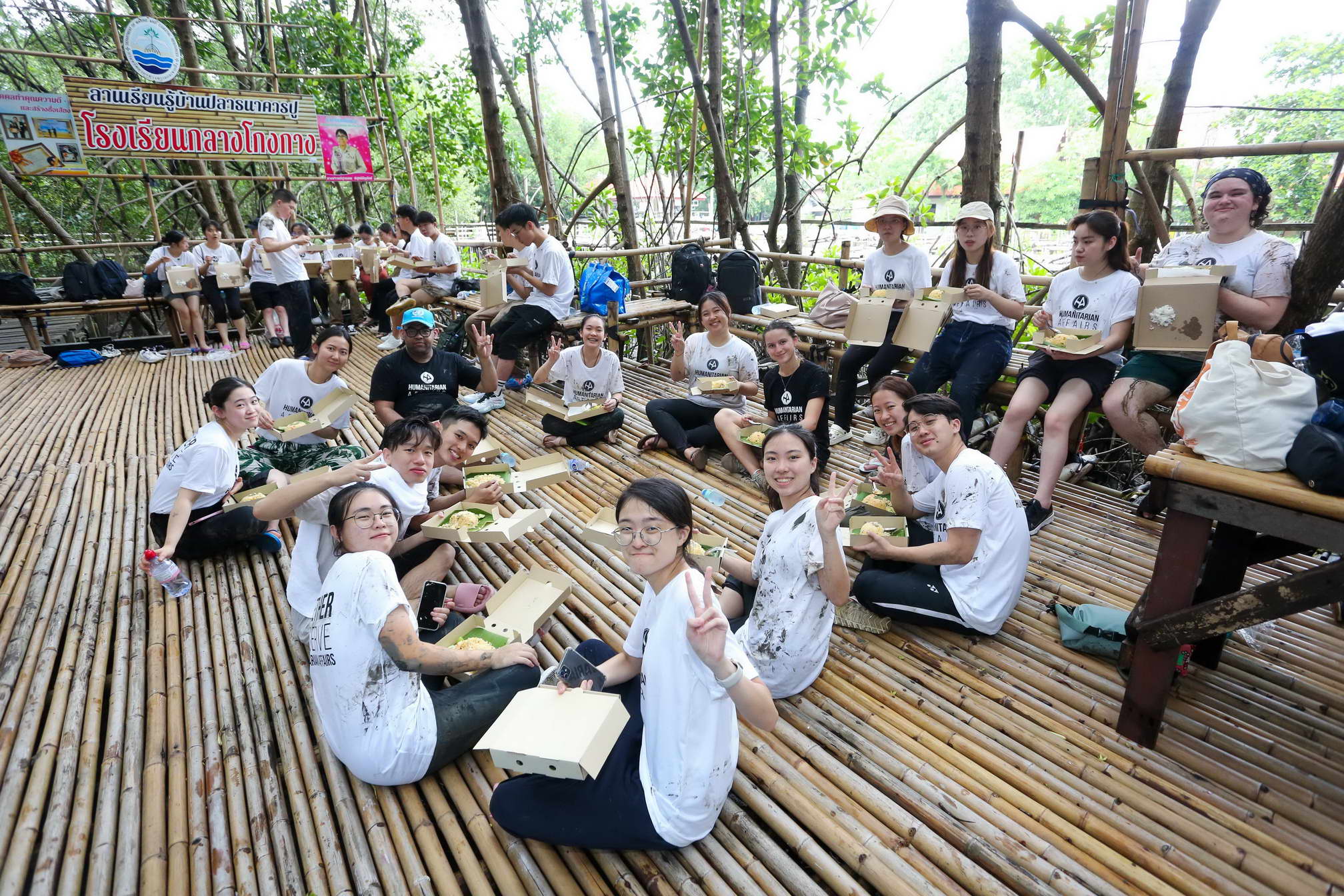The 12th University Scholars Leadership Symposium was a transformative experience that provided a platform for aspiring leaders to engage in discussions on global issues and to develop the skills necessary for effective leadership. The symposium featured a series of enlightening talks, networking sessions, and a day of volunteer work, which was an eye-opening experience. The people that I met from all over the world were what made this trip unique.
On the first day, David James Begbie, founder of the Crossroads Foundation from Hong Kong, delivered a talk that impacted me the most out of all speakers. He likened the Crossroads Foundation to a “dating app” that connects companies with charities and discussed how to align priorities between various charitable organizations due to the harsh fact that resources are limited. This analogy has resonated deeply as it highlighted the need for effective partnerships in addressing social issues. Resources are often unbalanced, and the idea to create a platform to link up additional resources with people who need them is fascinating. The sharing has encouraged us to think about how we can facilitate partnerships that could drive meaningful changes.
Sam Cawthorn, the Founder and CEO of the Speakers Institute, provided his insights on leadership, and his statement that “if you don’t get hate, it means you are not yet making a difference” was particularly memorable. This quote serves as a reminder that if you want to be the change, criticism would be unavoidable and how hard it is to truly make a difference.
I believe Shomy Hasan Chowdhury’s talk, “Find Your Passion in Something That Bothers You,” has also resonated with many attendees. Her advice to seek legal recognition for innovative ideas and to quote sources when sharing knowledge is essential for building credibility and trust, for example, telling people to follow the link if you want to know more. Shomy’s emphasis on the importance of passion in driving social change was also particularly inspiring.
On the 3rd day of the symposium was Kindness Day, during which I participated in a mangrove planting activity at the Bangpakong Mangrove Forest. This hands-on experience was not only fulfilling but also deeply educational. After we engaged in the tiring yet enjoyable labor of planting the saplings, we were encouraged to think of a word in our native language that describes our experience and to share it with the rest of the participants who planted mangroves together. I chose the phrase 落手落腳 in Cantonese, which translates to “doing things personally.” Having seen mangrove forests in Hong Kong before and learned about their ecological importance, it was meaningful to contribute hands-on to the conservation of these mangroves. The thought that the meter-tall saplings we planted would eventually grow to heights of 5-6 meters was both inspiring and humbling. Being waist-deep in the mud while planting these trees serves as a powerful reminder of the impact of our actions on the environment.
On the last day, I chose to listen to Ms. Joanna Dabao’s talk on “Leveraging Migration for Sustainable Development” as it was a topic that I wanted to know more about. The sharing highlighted the complexities of migration and its implications for social equity. There was an interactive activity that accompanied her presentation, which involved participants taking a step forward in scenarios like “I am able to access medical services” based on their identities such as mayor, regular, and irregular immigrants. It was a visual representation of how different identities can lead to vastly different life experiences and opportunities. For instance, the participant representing an irregular immigrant did not take a single step, contrasting with the mayor who took the most steps. This activity shed light on Sustainable Development Goal #10, addressing inequalities.
The talk was followed by group discussions that allowed us to dive deeper into the specific challenges faced by the four countries represented by different groups: Thailand, Japan, Myanmar, and the Philippines. By exploring potential Sustainable Development Goals (SDGs) that could be utilized to improve conditions, we gained a broader understanding of the interconnectedness of global issues. It was interesting to learn about different perspectives from people all over the world.
The 12th University Scholars Leadership Symposium was a life-changing experience. The talks and activities emphasized the importance of collaboration, passion, and social equity in driving positive change. During the time in Bangkok, I also got to build relationships with a diverse range of like-minded people who definitely enriched this trip. I am grateful for this opportunity offered by the school to broaden my horizon, and it was an unforgettable experience. The reflections and lessons learned from this symposium will undoubtedly serve as guiding principles in our journey towards being impactful leaders.

